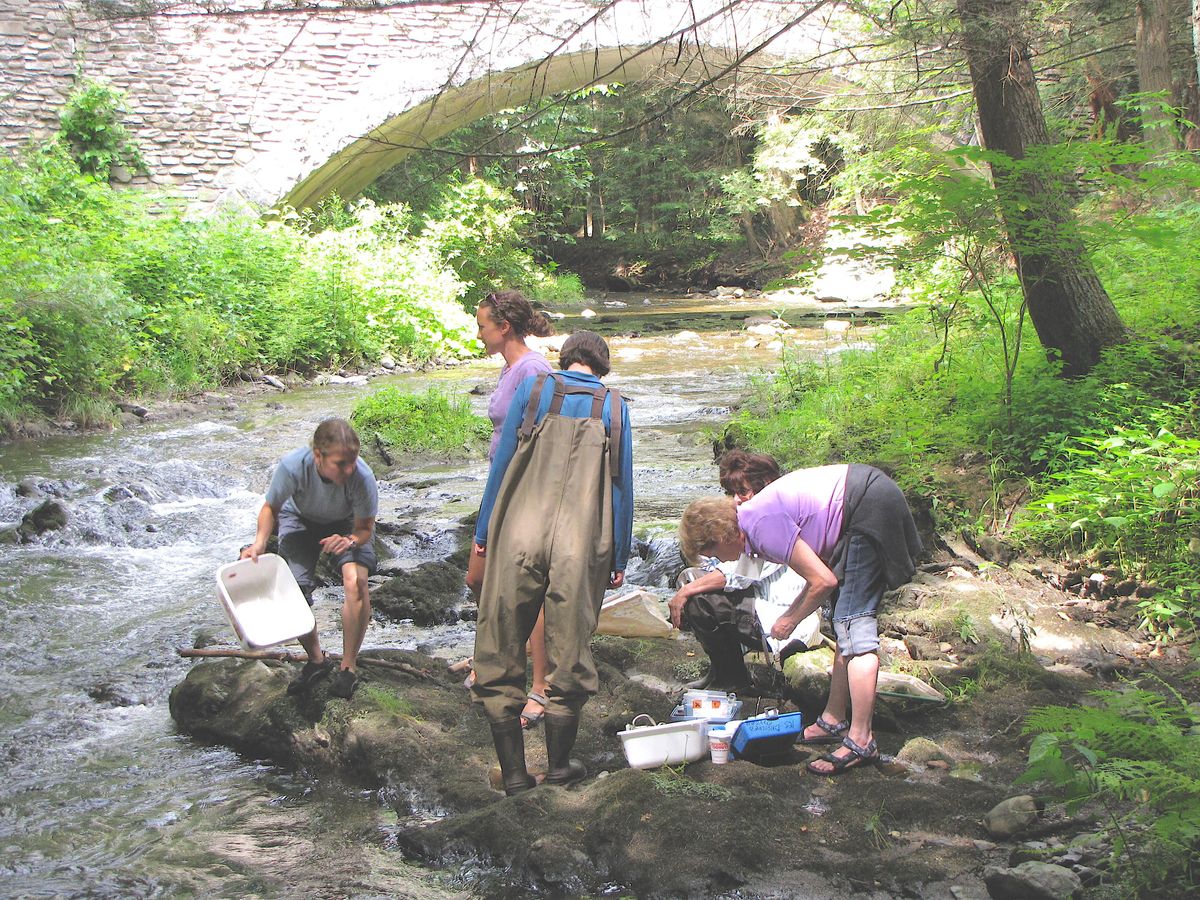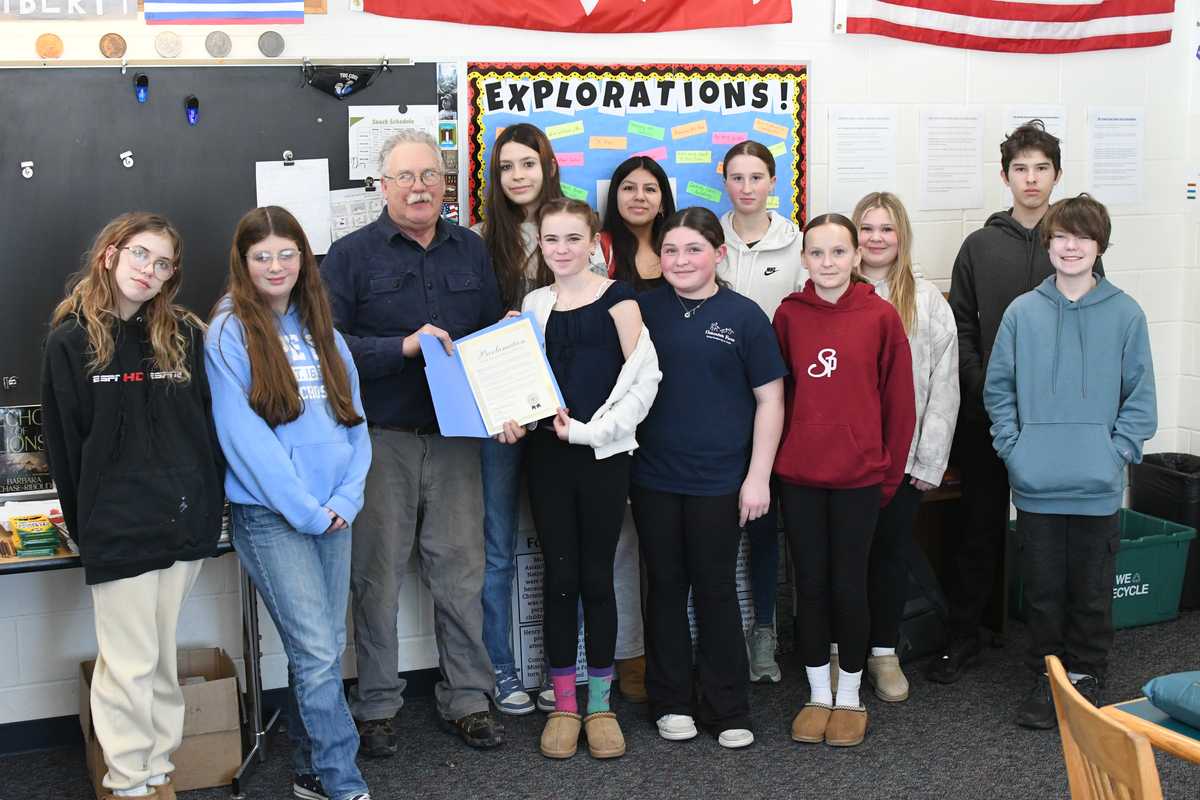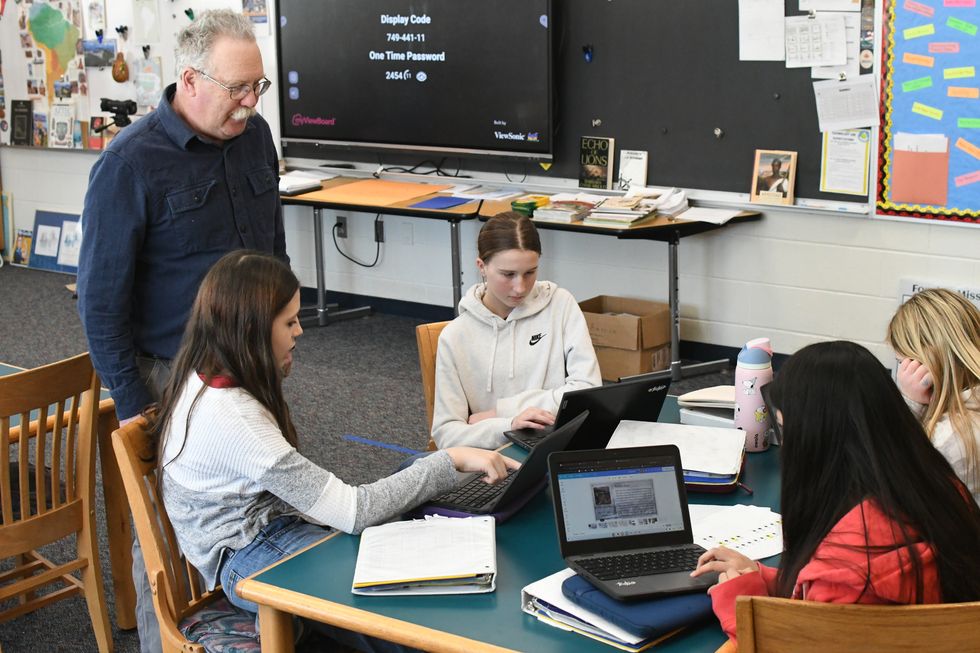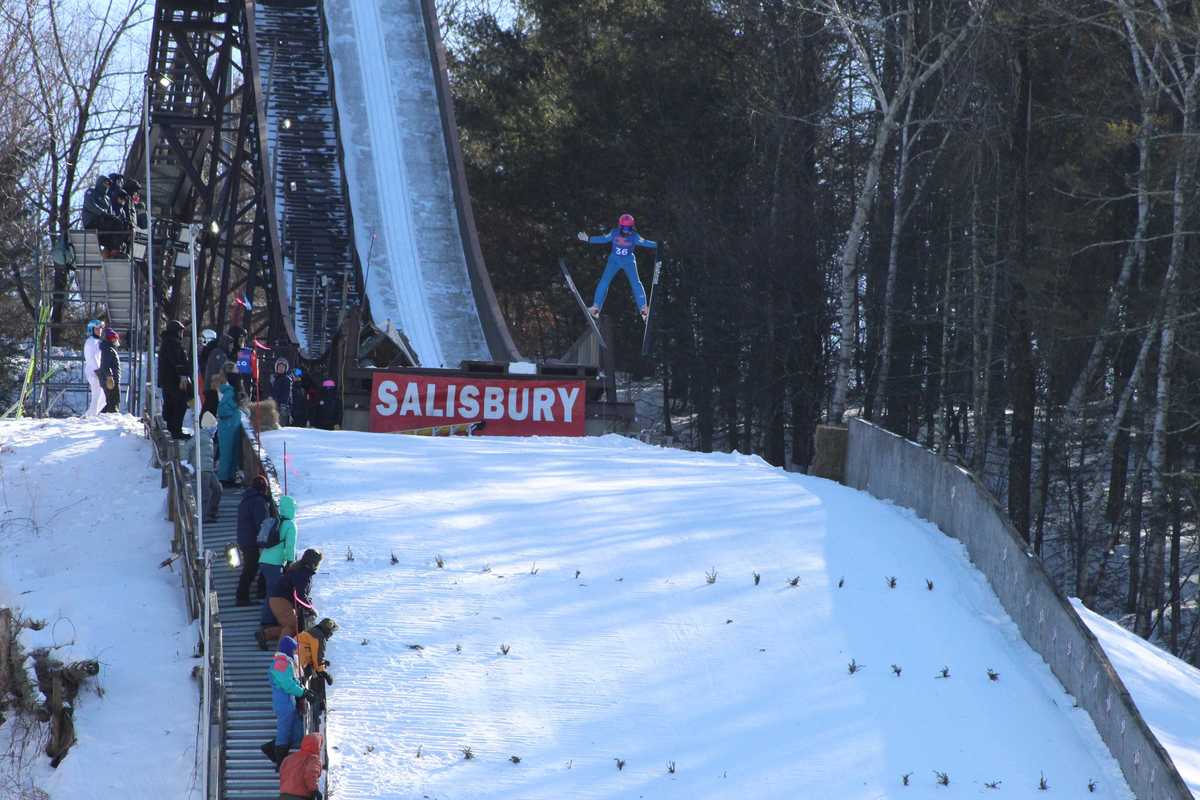Expanding the field: Cary invites teachers to study ecology at the Institute

Some of the research projects will involve the streams and ponds in eastern Dutchess County. Cary has conducted research into issues plaguing our waterways — such as pollution through medicine dumping and invasive species that have come to sites nearby — and their possible solutions for years.
Cary Institute of Ecosystem Studies
 Cary Institute is located at 2801 Sharon Turnpike in Millbrook, N.Y.Cary Institute of Ecosystem Studies
Cary Institute is located at 2801 Sharon Turnpike in Millbrook, N.Y.Cary Institute of Ecosystem Studies
 First Selectman Gordon Ridgway learns from 7th graders at Cornwall Consolidated School about the story of Robin Starr, a man who bought his freedom after serving in the Revolutionary War.Riley Klein
First Selectman Gordon Ridgway learns from 7th graders at Cornwall Consolidated School about the story of Robin Starr, a man who bought his freedom after serving in the Revolutionary War.Riley Klein
 Fireworks over Satre Hill Friday, Feb. 6.Alec Linden
Fireworks over Satre Hill Friday, Feb. 6.Alec Linden
 Salisbury Central School with SWSA jumpers.Dan Hubbard
Salisbury Central School with SWSA jumpers.Dan Hubbard  Willie Halloran of SWSA, Coach Seth Gardner, and ski jumpers Oona Mascavage and Camden Hubbard giving a history of Salisbury ski jumping and equipment demonstration.C Tripler
Willie Halloran of SWSA, Coach Seth Gardner, and ski jumpers Oona Mascavage and Camden Hubbard giving a history of Salisbury ski jumping and equipment demonstration.C Tripler The jumps at Satre Hill are groomed and ready for launch of the 100th annual Jumpfest Feb. 6 to 8.Photo by Lans Christensen
The jumps at Satre Hill are groomed and ready for launch of the 100th annual Jumpfest Feb. 6 to 8.Photo by Lans Christensen








